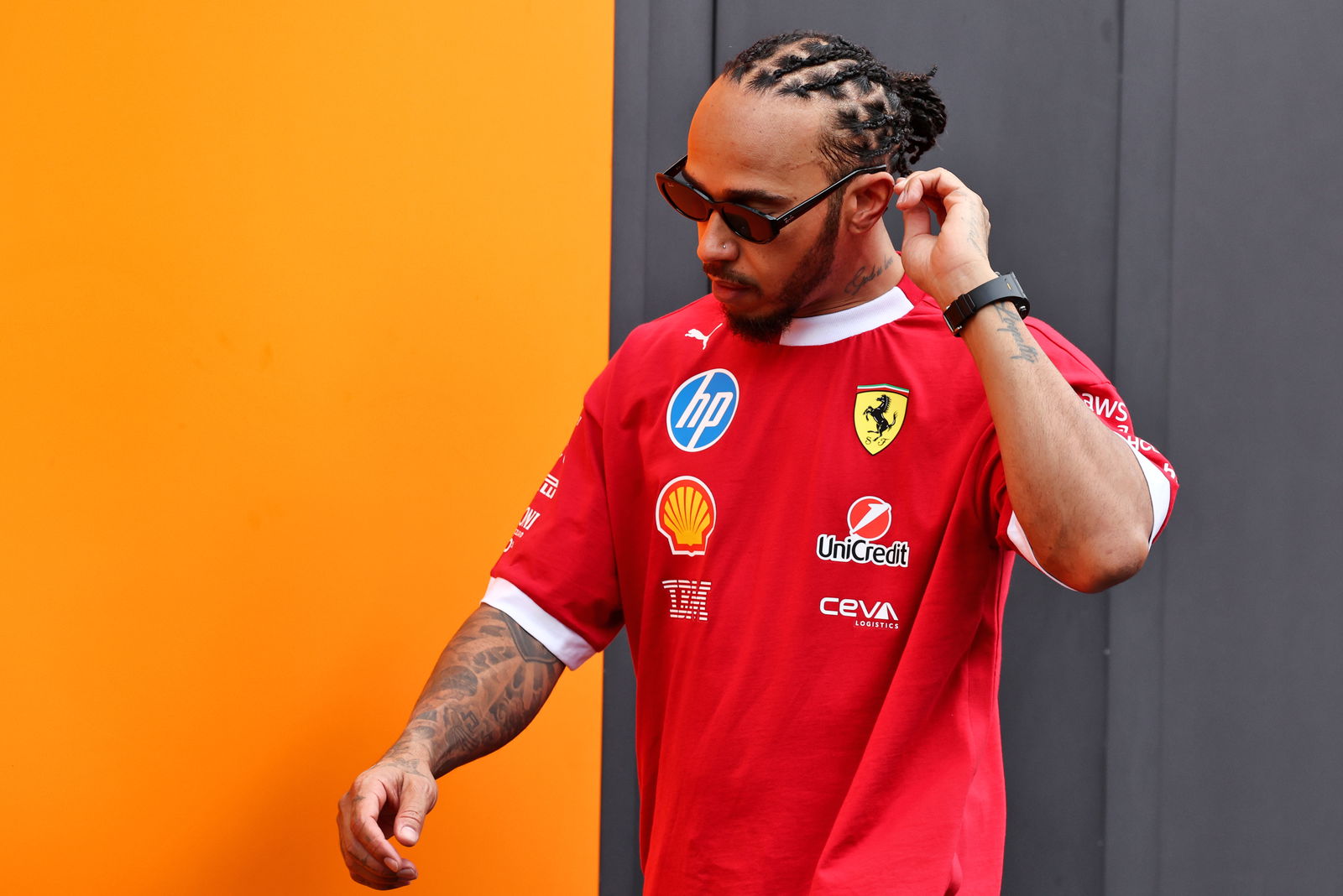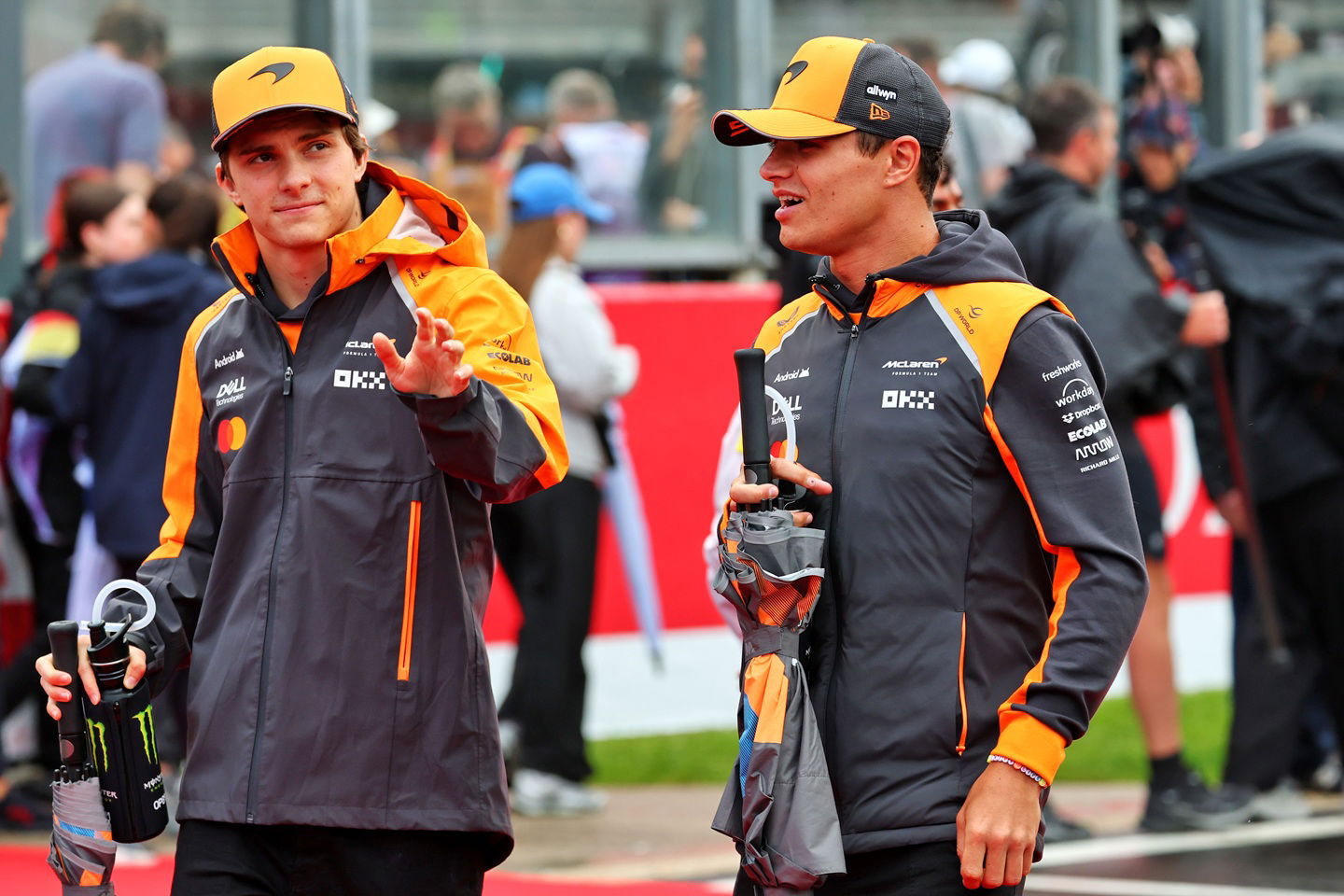Mercedes will throw problematic rear axle “in a bin somewhere”
Mercedes say they were "tripped over" by their new rear-suspension layout.

Mercedes boss Toto Wolff joked the team will throw their new rear suspension “in a bin” after it “tripped us over” in recent races.
Aside from claiming a 1-3 at the Canadian Grand Prix, Mercedes’ performance nosedived across the European leg of the season and following the introduction of a new rear-suspension configuration at Imola.
Prior to Imola, George Russell claimed four podiums in the first six races. The Briton returned to the podium in Hungary after Mercedes reverted to their previous rear-suspension layout, while Kimi Antonelli scored points for the first time since Canada.
“Well, that rear axle will be ending up in a bin somewhere, I guess,” Wolff told media including Crash.net after the Hungarian Grand Prix.
“Upgrades are here to bring performance, and there's a lot of simulations and analysis that goes into putting parts in the car, and then they're just utterly wrong.
“And you need to go back to the analogue world and put it in the car and see what it does, and if it doesn't do what it should do – and that's a tricky bit, I guess, for everyone in Formula 1. How do you bring correlation from what the digital world tells you into the real world?
“This is the [latest] example of how it tripped us over.”
Mercedes suspect poor correlation with simulation tools is partly to blame for the length of time it took to realise the rear-suspension was not working as hoped.
“If we make a new suspension, we're doing it to make the car go quicker, and clearly, there's something that wasn't right,” Mercedes trackside engineering director Andrew Shovlin said in the team’s latest post-race debrief.
“There’s areas that the drivers said the car was definitely better with that suspension. But when it came to stability in the fast corners, some of the corners where they're having to carry a lot of speed on entry, they didn't have confidence to push the car like they would like to.
“So as I said, we'd always try and make things that improve the pace of the car. This didn't. And a lot of the work that's going on now is to understand exactly what is it that has caused that problem. And it's not something that was dead obvious.
“Otherwise, we wouldn't have had the issue in the first place. But there'll be a lot of learning in there. Some of it will benefit us this year. But importantly, it'll benefit us for the future.”
No ‘smoking gun’ for Mercedes’ F1 performance slide
Speaking to select media including Crash.net earlier in the weekend at Budapest, Mercedes’ head of communications and team representative Bradley Lord shed more light on how the team was “retracting” their steps to get to the bottom of their performance issues.
“There’s a certain number of things it can be,” Lord said. “There’s some higher and lower probabilities of things that might have done that and might not of what we've brought to the car.
“And so that's the engineering work then to work through that and eliminate what those causes potentially are.
“There are some decent ideas of certainly where we start that work is higher probability influences. There'll be other things that have had no impact on it whatsoever that we've got to make sure we don't take goodness out of the car as well.
“But absolutely, there's clear indications. I can't sit here and run down that list for you. But we'll be working through that this weekend and hopefully finding this weekend what the right direction is.
“And if not, we'll keep analysing the data, looking at what we've done to get a handle on it for the second part of the season.”
Asked if the technical directive at the Spanish Grand Prix had any impact on Mercedes, Lord replied: “Certainly, that TD, everyone has had to make changes to their car as a result.
“That has an influence on the handling and it's a potential factor. But there's no one sort of smoking gun or single thing. It would be a combination of factors. But that's something that has happened in that period that I've talked about where our performance has become more inconsistent.
“You can't say it's a sole thing because we've also seen strong, as we said, the highest peak of our season so far. But that’s one of the factors that we need to consider.”


